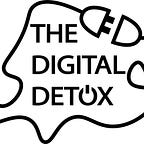(Anti-)Ageing with Grace
Just turned 30? That’s fine.. here is an anti-wrinkle serum.
Just spotted a white strand of hair? No worries.. cover it up with hair dye.
Ever considered botox or fillers?
These are questions women typically get bombarded with on a daily basis. Why is there so much pressure on women to prevent any sign of ageing? Why is the beauty industry dictating to women that wrinkles are not beautiful and that white hair is bizarre?
Over the years, clothes, tv shows, language, and beauty products have been classified for us by society into age-appropriate sectors. We have been accustomed to these ‘norms’ since we started interacting with the world around us. Certain things probably we didn’t know about until we reached a certain age.. try explaining to little girls that they might have wrinkles if they smile too much. A teen would stir away from an antiwrinkle serum at a store, or botox appointments thinking it is something old people use.
However, as means of a prevention, women in their 30’s typically start using antiageing products. The beauty industry has been adjusting our views and opinions about natural occurances that come with age to our bodies and it has made society conscious that everyone is at their ‘prime’ during youth. Women are socialized to be concerned about their appearences during any stage in their lives but the bombarded ideal is slim, youthful and toned (Franzoi, 1995). This however changes with the process of age as the skin looses its elasticity, hair becomes whiter and signs of ageing start to appear.
“What does it mean to be anti something?”
Ageing should not be shameful. Why are the products labelled anti-ageing, in a world where the prefix anti- is commonly seen preceeding words like violence, guns, war, racism. Language and labelling is as impactful as any advert and so, with labelling a product as anti-age, the message by the company to the buyer is that ageing is a negative side to life and needs prevention. Yet, the company is said to allow everyone to be comfortable in their own skin.
“Language matters. It affects how we see the world”
Wrinkles “make us real”, they “tell a story” and yet they still are one of the biggest concerns of young women as society has accustomed us to its own model of a ‘beauty standard’.
The contradicting statements, as seen in the below vadvert by the skin care brand Olay, promotes a filtered version of beauty. The tag line at the end completely puts all of that to perspective. Why do you need a product to smooth out your imperfections to “love the skin you’re in”?
Similarly, in Garnier’s hair dye advert, it is specifically indicated that there will be “no greys” once you use their product.
This idealised femininity puts shame on whoever decides to embrace their bodies regardless of any age marks. As Hurd Clarke (2010) pointed out, women often face a sense of displeasure when it comes to ageing; wrinkles sagginess of the skin and their hair which pushes them deeper into consumer culture. Some times this goes to extremities through the use of surgical procedures which may be harmful to the body in the longrun. However, model JoAni Johnson is fighting this ageist ideology and celebrating the natural processes of the human body.
The 67-year old model is showing society that the standards need to change and that the hair dye and antiwrinkle serums can be replaced with positive body image.
Gong along with the movement against anti ageing, Dove have started a ‘Pro- Age’ Campaign, using models of any age and body shapes to promote their products. This allows the company to show that there should be no discrimination to older generations being fed more expensive and seperate ranges of the same products. Supporting the pro age campaigns stating that
“Ageing is inevitably beautiful”.
References:
Hurd Clarke,L. and Benett, E. (2010) Routeledge Handbook of Culturre Gerontology. Gender Ageing and Appearence, (17), 132–136
Franzoi. S. (1995) The body as object versus the body as a process: Gender differences and Gender Considerations. Sex Roles , 33 (6) 417–420.
